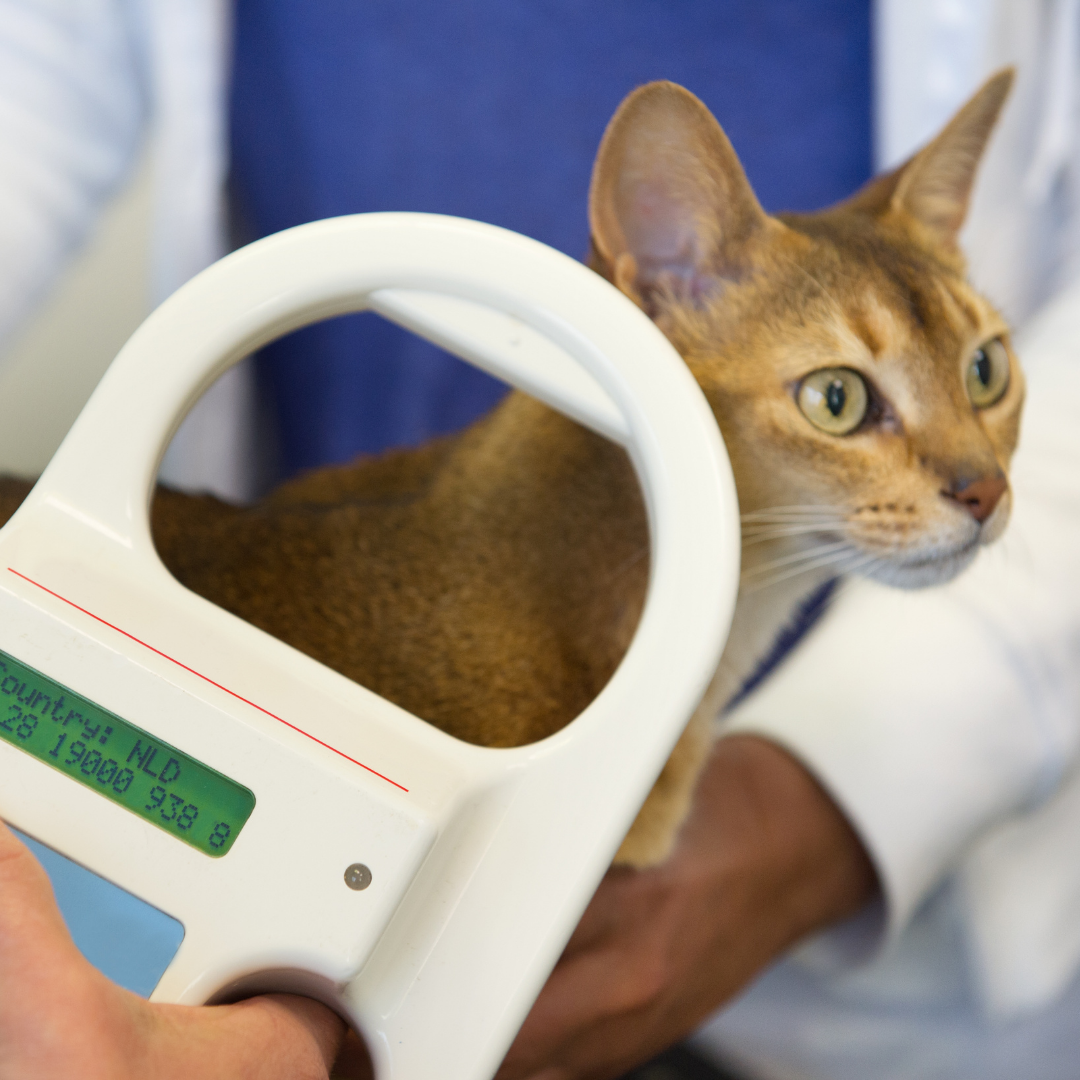You've found a cat. Now what?
At Tenth Life, we believe that every cat, regardless of emotional or physical limitations, deserves the chance at a fulfilling and happy life.
We provide veterinary care, foster homes, and adoptive placement to stray cats and kittens, prioritizing those with special needs. We work to end unnecessary euthanasia and cat homelessness through educational outreach, community programs, and collaborative partnerships.
We are so grateful that you’ve landed on this page because it means you care about helping cats. Below are some steps to take to help a cat you've found. Thank you!
I've found a cat. What do I do?
If they are very young kittens, go HERE first. Otherwise, when you’ve found a wandering kitty, the first thing you should do is to determine if the cat is safe. Does it seem to have injuries or medical issues or is it happy and healthy?
As a first step, we recommend asking your neighbors about them as it is very likely to be someone’s pet. Many people allow their cats to go outside and cats can roam a great distance. According to Dr. John Bradshaw of the School of Veterinary Science at Bristol University and author of Cat Sense, most cats roam between 40 and 200 meters (131 and 656 feet) from the home. One exception to this is farm cats who will cover a much larger area.
Cats are also curious by nature, seeking out new sights, sounds, and smells that entice them. They also tend to seek happiness and comfort wherever they go. They will generally accept food if you’re passing it out. If you or your pets are friendly and welcoming (or intriguing) to an outdoor kitty, the chances are good that they’re going to keep visiting even if they live nearby.
We also recommend posting on your neighborhood’s social media pages to see if anyone recognizes your new visitor. Even if the owner is not on social media, there is a good chance their neighbors may know the cat.
If you are in the Saint Louis area, you can also post on the Greater St Louis Missouri Lost & Found Paws page and Missouri Lost & Found Paws as well as the following sites:
Pawboost.com
STLLostPets.org
Saving Animals In Greater Saint Louis and Surrounding Areas
Saving St. Louis Pets
What if they have a tipped ear?
If they have a tipped ear like the kitty below, they are also likely spayed/neutered and may already have a caretaker who loves and feeds them. An ear tip is the removal of about one centimeter of the tip of an adult cat's ear. This is a universally recognized, safe and humane procedure that is done while the cat is under anesthesia for spay/neuter surgery. This is only done for feral cats, barn cats, or outside community cats who generally have caretakers who are watching out for them.

I've posted them on social media and lost and found pages. What should I do now?
An appropriate next step may be to check with your local veterinarians or animal control facilities to see if anyone has reported a lost cat matching their description.
If you feel the cat may be lost and not simply roaming around or if it has issues about which you are concerned, you can place the cat in a carrier (if they’re amenable and it's safe to do so). You'll then want to take them to any veterinarian to have them scanned for a microchip. So long as the microchip has been properly registered, they'll be able to contact the owner to let them know that their pet has been found so that they may be reunited with their family which is the goal for any pet.

I haven't heard from anyone yet and there's no microchip or it wasn't registered. What now?
Next, you'll want to get the word out further. Posters/flyers with photos and clear descriptions and contact details are an excellent way to get cats back home where they belong. While you’re attempting to locate their family, you can keep the cat safe in a bathroom or small room away from other pets. Organizations like Tenth Life and the Bi-State Pet Food Pantry may be able to help if you can’t afford a litter box (they can be purchased very cheaply at most dollar stores) or supplies. Generally speaking, you should be able to get the supplies you need to help them short-term for around $10-20 or less. And a low cardboard box can even be used in a pinch! Get creative and use what you have. For basics, you’ll need:
-an isolation space with a door (such as a bathroom or spare room)
-a water bowl
-a food bowl
-a litter box and litter
-cat food
-clean water, refreshed daily
-a bed which can be made of anything soft, dry, and cuddly
That's a good start to helping a cat.
How long will helping a cat take?
It's hard to say but any time you can give may be lifesaving. It can often take some time to find a cat’s owner or a new placement for them but we suspect that you’d want someone to do the same for you. Think of how grateful you'd be that someone went out of their way to foster your lost pet and keep them safe for a week or a month while searching in an effort to reunite you with your family member.
What you are doing by helping is important! Each cat who does not enter a shelter may very well save a life. It could be their own or one who is currently at the shelter as some shelters euthanize pets when space or resources are impacted. When one cat comes in, often one must leave one way or another. It's a sad thing to have to think about but your ability and willingness to be a little inconvenienced for a while can make a major difference.
Can I just keep the cat?
If you've done everything you can here and you still can’t find the owner with flyers, posts, microchips and such, you could consider making the cat a part of your family if it's a good fit and you have the time and space to do so. You can find advice on how to introduce a new cat to your cats or dogs and other topics HERE.
It's best to take them to the veterinarian before introducing them to any other pets. You’ll want to make sure they receive at least basic vaccinations and testing. The basic items we recommend providing are:
-
Rabies (this is legally required in most places)
-
Deworming
-
Flea prevention such as Revolution which treats
-
FVRCP vaccination
-
Microchip (be sure to register it!)
-
Spay or neuter
-
Testing for Feline Leukemia (FeLV), Feline Immunodeficiency Virus (FIV), and heartworm. We do not recommend euthanizing a cat for testing positive for any of these unless they are currently incurably suffering. False positives are possible and there are groups that will admit and even prioritize these cats.
You can find low-cost care options HERE.
What if I cannot keep them or find placement on my own?
If you decide not to keep the cat you’ve found, asking friends and family would be a good next step. You can also attempt to safely re-home them yourself using Rehome by Adoptapet. If asked, please let them know that Tenth Life Cat Rescue referred you.
You can find local rescues to contact HERE to see if they have room, as well. While Tenth Life would love to help every cat, we (like so many rescues) are often full but we will always happily work to help you find resources even when we can't help more directly.
Should you choose to list any pet on a site like Facebook (including in pet groups) or on Craigslist, we highly recommend waiting several weeks before doing so. Even then, we suggest requiring a rehoming fee. Even $50 or $100 will help discourage those who seek to harm a cat and can even be used by you to get the cat spay/neuter/vaccines it needs before it moves.
You’ll find excellent advice on safely choosing the right adopters HERE.
You can also use sites such as Missouri Casenet or other public records sites to view criminal and civil court records to ensure that there are no concerning violent or animal-related charges that would alarm you as the cat’s advocate.
Can’t I just drop the cat off at an open-admission shelter that takes everything?
We cannot recommend surrendering a cat to an open-admission shelter unless you’ve exhausted every available option. Shelters are often overcrowded and may make the decision that they can’t place or hold the cat and they may be euthanized for space or other reasons.
There are also some open-admission admission shelters that actually never place most or any cats up for adoption and some won’t allow smaller rescue organizations to come in and save them so they never get a chance.
Young kittens without moms, pregnant moms, cats over the age of 5 and cats with any type of health issue are the most at-risk in many open-admission shelters. This is especially true for shelters that don’t meet the definition of no-kill as indicated by Best Friends Animal Society. You can see their National Dashboard below (click through to the city/county you’d like to see to learn more).
Best Friends Animal Society National Dashboard
Saint Louis area euthanasia rates will be linked here soon.
Finding Placement at a Rescue
If you’ve already tried everything and you’re at the point of reaching out to shelters, you are more than welcome to submit a request to Tenth Life.
As a reminder, we prioritize strays in our service area as well as cats with special needs and injuries and those in high-risk situations and shelters, including very young or very old cats. We do not currently accept owner surrenders directly from owners or third parties but you can find resources here for rehoming a pet and we're happy to help you find resources if you email us.
While we wish we were able to help every cat who needs us, please remember that we have limited space and resources. Sadly, we aren't always able to admit a cat even if its needs are significant. While we prioritize those with special needs and injuries, we have limited space for cats with specific needs. When spots are filled for cats with, for example, Feline Leukemia, we must wait until the cat is adopted to place another. In the case of hospice care we give them all the time and care they need until they pass. Because hospice care is rewarding but emotionally exhausting work, we tend to need a break between hospice placements, as well. Every case is unique and we triage requests based on need and our capacity to help each individual cat to the best of our abilities.
Filling out the form below will allow us to learn more, ask more questions, and/or send you resources tailored to your needs. We will do all that we can to help even if we are unable to admit a cat and we appreciate all that you're doing as an advocate to cats in need.
While reaching out to Tenth Life, we highly recommend simultaneously reaching out to as many rescues as you can. You'll find many listed HERE.
